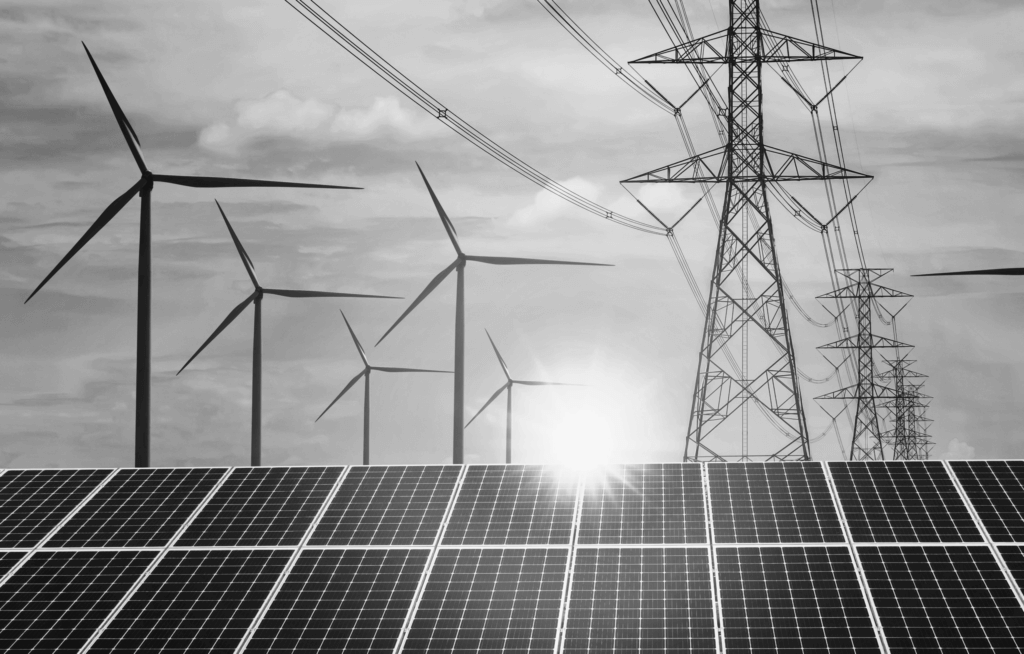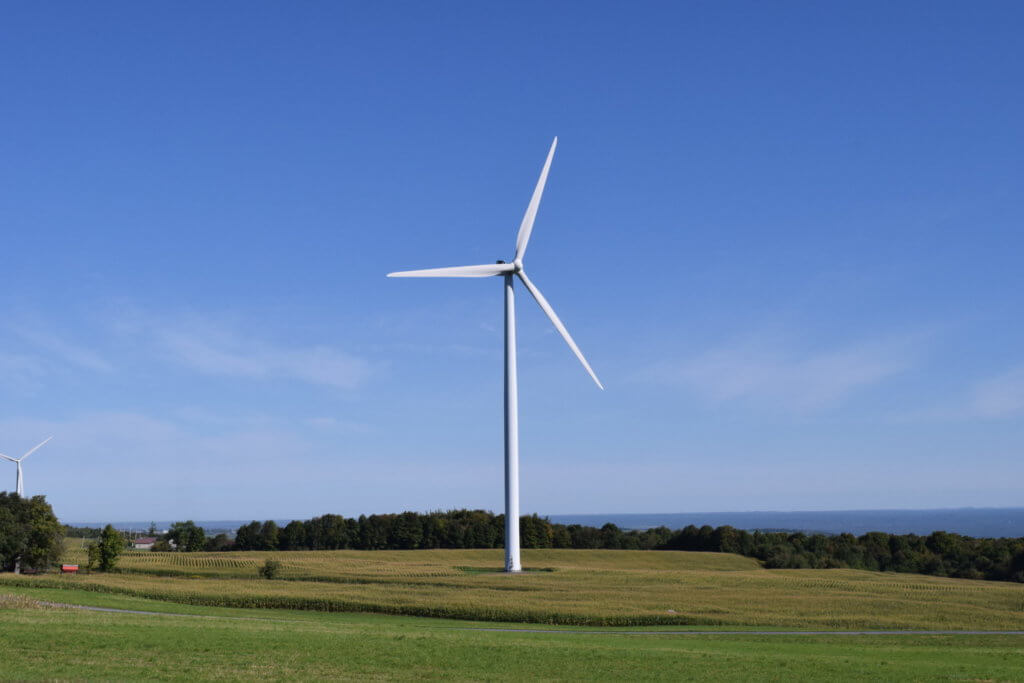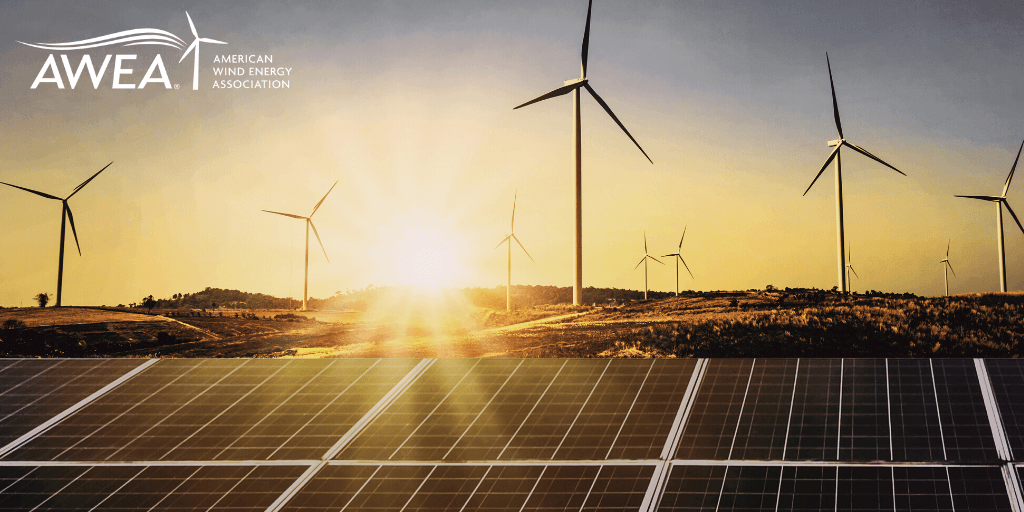Fact check: Fred Udo's bogus numbers on wind and emissions savings
A new report (calling it a "study" would be giving it too much credence) on wind power and emissions is circulating in the anti-windosphere. Authored by Fred Udo, it makes the seemingly–and actually–goofy claim that emission reductions from wind, a zero-emissions energy source, are small.
How does Mr. Udo achieve this result? By looking at statistics for Ireland's energy use thatconfuse emissions from direct heating (using fossil fuels) with emissions from electricity generation. This leads to erroneous results, but hey, as long as they make wind look bad, that's the important thing.
Here's more from AWEA Manager of Transmission Policy Michael Goggin:
There's a large, well-established body of empirical evidence showing that as states like Colorado and Texas have added wind energy to their grids, their carbon dioxide emissions decreased by even more than had been expected. That data was used to directly refute an erroneous study by consulting firm Bentek even before the study came out 18 months ago, and the Bentek study has since been widely dismissed as the fossil fuel industry attack piece that it is, except for continued efforts by the fossil fuel industry to continue spreading its misinformation.
There are also dozens of power system studies conducted by utilities, government agencies, and independent grid operators showing that adding wind energy to the grid results in larger emissions savings than the 1:1 offset commonly expected, largely because additional wind energy forces inflexible coal plants to be taken offline for extended periods of time and the share of their output not directly replaced by wind is replaced with more flexible and cleaner natural gas generation. I won't waste time repeating the full discrediting of the Bentek study that has already taken place, but you can read through that with the numerous links at the bottom of this article.
Regarding Fred Udo's report on wind and emissions in Ireland, it only took a few minutes to unravel the statistical trick Mr. Udo was using to get his results, which might explain why his analysis wasn't published in a peer-reviewed journal and rather appears on an obscure Dutch anti-wind website.
This appears to be a classic case of a lurking (or confounding) variable being used to misleadingly present correlation as causality; a comparable example is arguing that cigarette lighters cause lung disease since people who buy them tend to develop lung disease. In this case, the lurking variable that is the actual causal factor appears to be cold weather and its impact on heating demand, data that Mr. Udo should have had access to but that (for reasons we can only speculate) he chose not to use in his correlational analysis.
What tipped me off was part 3, Figure 3 of his text, where Mr. Udo called out an event in Ireland around June 9-12, 2011, when the carbon intensity of Ireland’s electricity production surged. I was curious as to what might have caused that event so, on a hunch, I pulled weather records for Ireland. Sure enough, there was an abnormally cold spell when temperatures fell into the 30’s and 40’s F, 10 to 20 degrees below normal for that time of year. Aha! Cold temperatures drive heating demand, forcing Ireland’s numerous fossil-fired combined heat and power (CHP) plants to fire up and run at a high level of heat production (and subsequently more emissions per megawatt-hour, MWh, of electricity, since CHP plants relative to the rest of the fleet are not optimized for electricity production, and CHP plants being run to produce maximum heat are not being operated in a way that is optimized for electricity production; moreover, it appears that the emissions associated with heat production are rolled into the data that Mr. Udo is using, so a CHP plant producing only or mostly heat and little or no electricity under cold conditions like these would score at infinite emissions/MWh). A smaller possible factor is that higher demand for electric heating drives higher merit order, less-efficient fossil plants to operate to meet the abnormally high electric demand.
As one would expect, cold spells and home heating demand often correlate with high wind speeds, which is how Mr. Udo was able to draw his false conclusion that wind was the causal factor. Sure enough, a closer examination of the spikes in emissions/MWh in his data show that all are associated with cold spells, and only some are associated with an increase in wind output. It doesn’t take a statistician to tell you which is the causal factor in that relationship. Had Mr. Udo himself been more interested in finding the actual causal relationship at play here, he might have noted that the correlations between wind output and emissions intensity varied widely from month to month (as one would expect for weather-driven seasonal changes in electric demand), usually a strong indication that another variable may be the actual causal factor.
I should also point out that, contrary to Mr. Udo’s claims, the method Irish utility system operator EirGrid uses to calculate emissions savings from wind is accurate. The plant-specific heat rate curve that they are using would account for all of the impacts wind energy would have on the efficiency of the fossil fleets under all operating conditions.
As mentioned earlier, here are summaries of the evidence refuting the Bentek studies on wind and emissions:
http://www.renewableenergyworld.com/rea/news/article/2010/09/the-facts-about-wind-energy-and-emissions
http://archive.awea.org/newsroom/pdf/04_05_2010_Colorado_emissions_response.pdf
http://www.awea.org/newsroom/realstories/The-Facts-about-Wind-Energy-and-Emissions.cfm
http://www.awea.org/newsroom/realstories/upload/110720-The-Facts-about-Wind-Energy-and-Emissions.pdf
Still more reading:
Fact check: Former oil exec misleads on wind reliability, emissions cuts, July 28, 2011
Fact check: Bryce, Bentek miss on emissions, July 20, 2011
Fact check: Utility spokesperson errs on wind integration, July 5, 2011
Wind energy integration: Some fundamental facts, June 23, 2011
New gas industry report misunderstands U.S. power system, misses wind's contribution to U.S. electrical reliability, March 20, 2011
How wind energy is integrated on the grid, March 18, 2011



